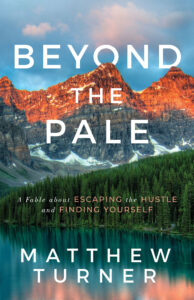How do you see those around you? Do you look up to them? Down on them? See them on the same level?
A few weeks ago I read an article by Denise Urena. It begged the question of whether we should be a fan to those we admire, or see them as a peer. What should our community engagement be like?
This fascinated me enough to contact several people and ask the questions:
How do you balance between Peer & Idol?
Where does your line lay?
When do you ask the question, if ever?
I heard thoughts from: Denise Urena, Chris Brogan,Jim Hopkinson, Toni Tesori, Tania Dakka, Joel Friedlander, Chris Guillebeau, Joanna Penn, Laura Dennis, Danny Iny, Dan Blank & David Gaurgran.
The feedback lead me to three sides of the argument:
- The Fan
- The Peer
- The Neither
In the Previous Post we looked at The Neither. Today the focus is on The Fan.
We’re All Fans To Someone
I love the idea of seeing everyone as a peer. However, maybe we’re supposed to be a Fan, sometimes. After all, those successful folk have worked hard to get where they are.
“They have worked hard. They have done what we need to do to get where they are.” – Tania Dakka
This is true. Can you imagine if Sir Richard Branson treated everyone as a peer? He wouldn’t have enough hours in the day. Plus, he’s worked hard to get where he is. Doesn’t he deserve to stand on a slightly higher platform?
Tania also brings up another good point:
“At the same time, Peers aren’t going to buy from you. Fans will.”
We Can’t Always Be A Peer
“I have had conversations with Lee Child, Jeffrey Deaver, Lisa Gardner and other amazing thriller writers – I am a fan of these writers and one day would hope to be a peer. But I am certainly not right now.” – Joanna Penn
“In 2012, I am fairly confident as an author. I might still be a fan to a Stephen King or Malcolm Gladwell, but at a recent conference with some fairly accomplished people, I was confident in saying “I am a published author too” because I’ve had a book out for a year” – Jim Hopkinson
Sometimes We Want To Be A Fan
There is of course the question of what you want from the other person. Dan Blank says:
“I was trying to think of this in terms of if you “want” something from someone. So – do you WANT something from someone as a fan or a peer?”
This is a good point. Having a peer mindset might be healthy, but sometimes we might simply want to be a fan. Dan explains this by sharing a story of his own fandom:
“My favorite singer is Glen Hansard. I’ve met him several times, and every time, I go into fan mode. I just start thanking him endlessly, and since I am not really adding anything to a broader conversation, he politely smiles and says thanks back. I know folks who have become his friend by just engaging him in conversation, by being a peer, not a fan. But you know what, I LIKE being just a fan in this case. I like building up his legend in my mind.”
Is there anything wrong with this? I would say not. Sometimes we want to see someone in a shining light. Sometimes we want to be a fan.

